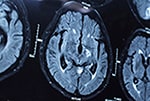
Health Care Providers
Health care providers play an essential role in recognizing, treating, and managing epilepsy.
Diagnosing and Treating Epilepsy
2017 Revised Classification of Seizures
The International League Against Epilepsy (ILAE) has revised its classification of seizures. The changes will help make diagnosing and classifying seizures more accurate and easier.
The International League Against Epilepsy (ILAE) has revised its classification of seizures. The changes will help make diagnosing and classifying seizures more accurate and easier.
International League Against Epilepsy: A Practical Clinical Definition of Epilepsy[PDF–130]
This 2014 report provides the ILAE’s recent guidelines for diagnosing epilepsy.
This 2014 report provides the ILAE’s recent guidelines for diagnosing epilepsy.
American Epilepsy Society (AES)
This professional organization promotes research, education, and collaboration for professionals dedicated to the prevention, treatment, and cure of epilepsy.
This professional organization promotes research, education, and collaboration for professionals dedicated to the prevention, treatment, and cure of epilepsy.
National Association of Epilepsy Centers (NAEC)
NAEC is a nonprofit association whose members include more than 200 specialized epilepsy centers across the United States. This organization connects people with epilepsy and caregivers to quality care and supports epilepsy centers.
NAEC is a nonprofit association whose members include more than 200 specialized epilepsy centers across the United States. This organization connects people with epilepsy and caregivers to quality care and supports epilepsy centers.
Shared Decision Making Toolkit
The Agency for Health care Research and Quality (AHRQ) SHARE Approach is a five-step process for shared decision making that includes exploring and comparing the benefits, harms, and risks of each option through meaningful dialogue about what matters most to the patient.
The Agency for Health care Research and Quality (AHRQ) SHARE Approach is a five-step process for shared decision making that includes exploring and comparing the benefits, harms, and risks of each option through meaningful dialogue about what matters most to the patient.

Encouraging Self-Management
People with epilepsy can benefit from learning skills and techniques that help them manage their disorder, its treatment, and its effects to live full and satisfying lives. Physician support of patient self-management is a key component of effective chronic illness care. A patient is much more likely to participate in a self-management program with a recommendation from a health care professional.
WebEase is a free, online, evidence-based program for adults with epilepsy aged 18 years or older. Learn more about how to encourage self-management and WebEase:
- Health care provider brochure with references[PDF–529K]
- Health care provider brochure without references[PDF–433K] (may be preferred for distribution)
- Health care provider brochure (Spanish)[PDF-409K]
Addressing Depression
PEARLS (Program to Encourage Active, Rewarding Lives) is an evidence-based self-management program designed to reduce depression and improve quality of life in adults with epilepsy. A mental health counselor provides 6 to 8 skill-building sessions that take place in a person with epilepsy’s home. The program uses a team-based approach, involving doctors, nurses, and social workers to help the individual overcome depression.
The PEARLS Program is designed to be part of community-based programs that deliver care and provide resources to clients. The PEARLS team conducts several on-site training sessions throughout the year in Seattle, Washington. Learn more about the PEARLS training.
Managing Epilepsy Well Network
The Managing Epilepsy Well (MEW) Network is a group of academic Prevention Research Centers that conduct studies related to epilepsy self-management. Read about MEW Network projects and how they are improving health and quality of life through their research, programs, and tools.
The Epilepsy Foundation also has resources for your patients to better manage their epilepsy.
View more resources related to epilepsy.
 Neurocysticercosis is a leading preventable cause of epilepsy worldwide. This free online course educates clinicians about neurocysticercosis. Lessons include epidemiology, presentation, diagnosis, evaluation techniques, and management of patients. Continuing education credits are available at
Neurocysticercosis is a leading preventable cause of epilepsy worldwide. This free online course educates clinicians about neurocysticercosis. Lessons include epidemiology, presentation, diagnosis, evaluation techniques, and management of patients. Continuing education credits are available at 

































No hay comentarios:
Publicar un comentario